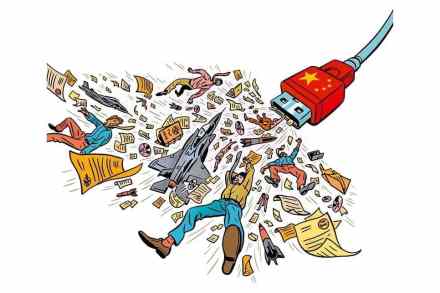The China threat our politicians don’t seem to have noticed
The Chinese Communist party can congratulate itself on another sign of its rise: for the first time it has become a factor in deciding the fate of British politics. During Monday’s televised leadership debates, Liz Truss and Rishi Sunak tried to appeal to Tory members by outdoing each other on their commitment to protect our national security, economic prosperity, data privacy and values from the CCP. They both referred to Chinese theft of our science and technology, but the problem is much, much wider than that. What is more serious is our blithe willingness to import Chinese control into the most sensitive areas of our economy and society. Neither aspiring





















